Skincare is more important than ever in our Life!
Beyond superficial beauty, it plays a vital role in maintaining overall health and well-being.
From protecting against harmful UV rays to preventing premature aging and boosting self-confidence, skincare offers a wide range of benefits.
In this article, we will explore why skincare matters, examining its impact on health, self-esteem, and skin-related issues.
Taking care of our skin improves its health, making us feel more comfortable and confident. This positive energy radiates across various aspects of our lives.
Avoiding common skincare mistakes, such as overwashing or neglecting sun protection, is essential for optimal results.
Skincare goes beyond beauty. It is essential for maintaining overall health, boosting self-confidence, and preventing skin-related issues. By understanding its importance, we can unlock the numerous benefits it offers.
Some of the links in this post are affiliate links. This means if you click on the link and purchase the item, I will receive an affiliate commision at no extra cost to you. All opinions remain my own. Read more on our Privacy Policy page
how to improve skin elascity
The Importance of Skin
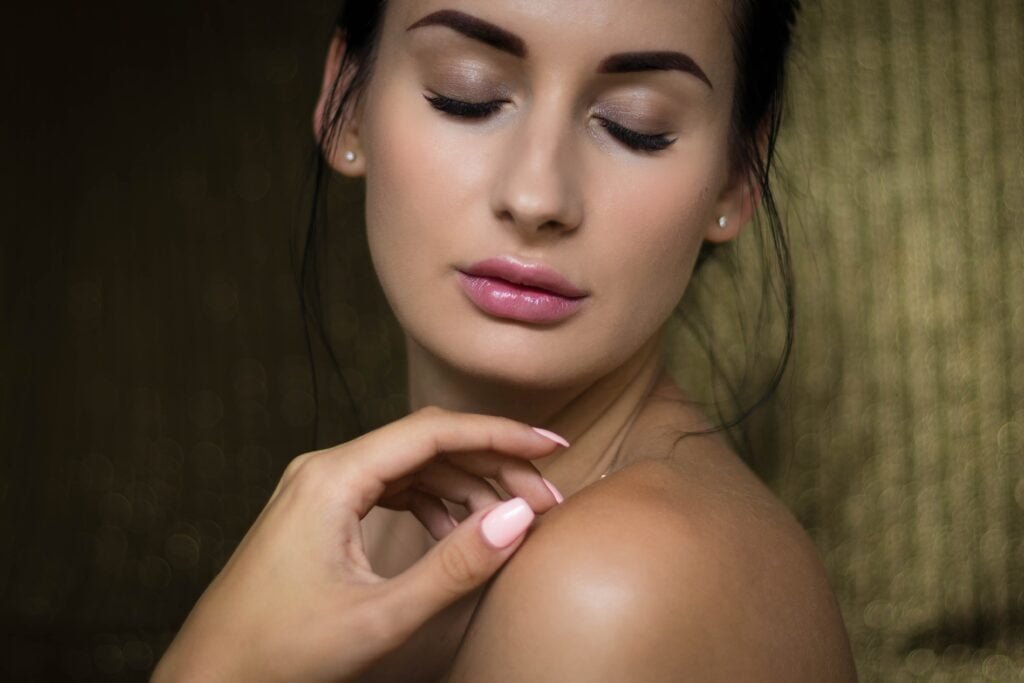
The Skin: Body’s Largest Organ
Our skin holds a remarkable position as the body’s largest organ, covering an expansive surface area and representing about 16% of our total body weight. Its status as an organ emphasizes its critical role in maintaining overall health.
Functions of the Skin: Protection, Regulation, and Sensation
The skin serves vital functions that contribute significantly to our well-being.
Protection:
Primarily, the skin acts as a formidable protective barrier. It shields the body from external threats such as pathogens, toxins, and harmful UV radiation. Through its outermost layer, the epidermis, the skin forms a physical barrier, preventing the entry of harmful substances. This protective function ensures the preservation of our internal organs and systems.
Regulation:
The skin plays a pivotal role in regulating various bodily functions. It assists in temperature regulation by dilating blood vessels and activating sweat glands in response to high temperatures, facilitating heat release through evaporation. Conversely, in cold environments, the skin constricts blood vessels to conserve heat. This temperature regulation mechanism helps maintain the body’s internal balance.Additionally, the skin contributes to the regulation of water and electrolyte balance. By acting as a barrier, it prevents excessive water loss, thus aiding in the maintenance of proper hydration.
Sensation:
Our skin possesses an intricate network of sensory receptors that enable us to perceive and interpret different sensations. These receptors detect stimuli such as touch, pressure, temperature, and pain. Through the transmission of signals to the brain, the skin allows us to respond appropriately to our environment. The sense of touch, in particular, is essential for social interactions and our overall well-being.
Health Benefits of Skincare
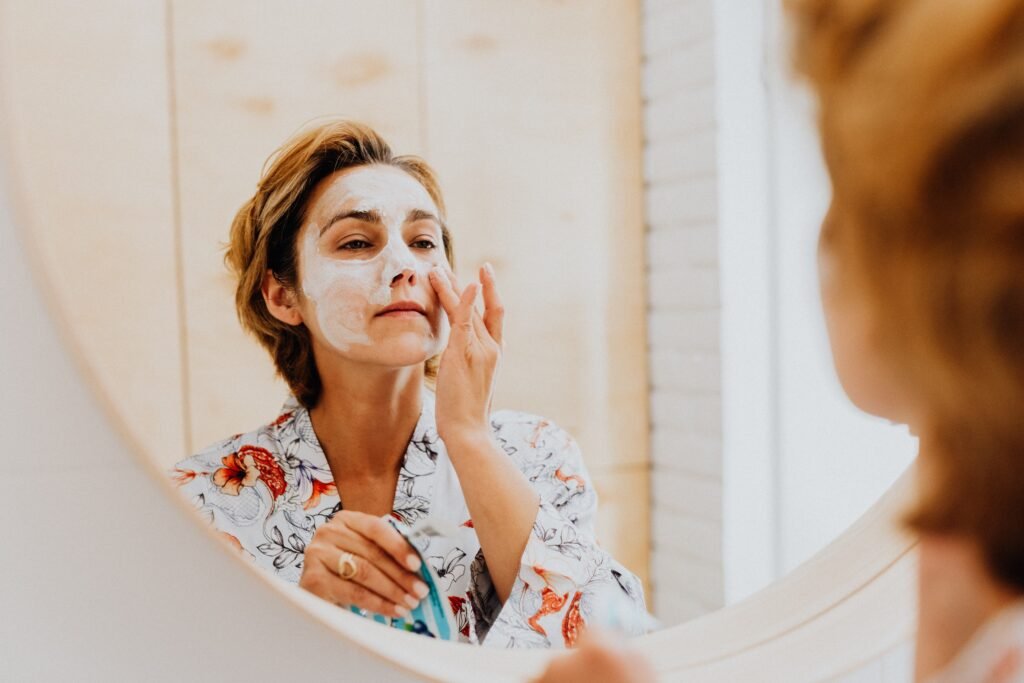
Protection against Harmful UV Rays
Discussion on the Damaging Effects of Sun Exposure:
Prolonged exposure to the sun’s harmful ultraviolet (UV) rays can have detrimental effects on the skin. UV radiation can penetrate the skin, leading to DNA damage within skin cells. This damage increases the risk of sunburns, accelerates the aging process, and heightens the potential for developing skin cancer, including the dangerous melanoma.
Importance of Sunscreen and Its Role in Preventing Skin Cancer:
Sunscreen plays a pivotal role in skincare by providing a vital shield against UV radiation. Applying sunscreen with a high sun protection factor (SPF) safeguards the skin from UVA and UVB rays, minimizing the risk of sunburns and long-term damage. Consistent and proper use of sunscreen has been linked to a reduced incidence of skin cancer, emphasizing its critical role in preventing this life-threatening condition.
>>> EltaMD UV Active SPF 50+ Mineral Sunscreen Lotion

Prevention of Premature Aging
Implementing regular skincare routines contributes to maintaining a youthful and healthy appearance. Practices like cleansing, exfoliating, and moisturizing play essential roles in slowing down the natural aging process. They remove impurities, stimulate cell turnover, and provide nourishment to the skin, promoting a more youthful and vibrant complexion.
Anti-Aging Products and Their Benefits
Anti-aging products specifically target and minimize visible signs of aging, including fine lines, wrinkles, and age spots. These products often contain beneficial ingredients such as retinol, antioxidants, peptides, and hyaluronic acid. They work synergistically to boost collagen production, enhance skin elasticity, and improve hydration. Incorporating anti-aging products into a skincare routine effectively reduces the appearance of aging, helping to maintain a more youthful and rejuvenated skin.
Recommended Serum: Hydrossential
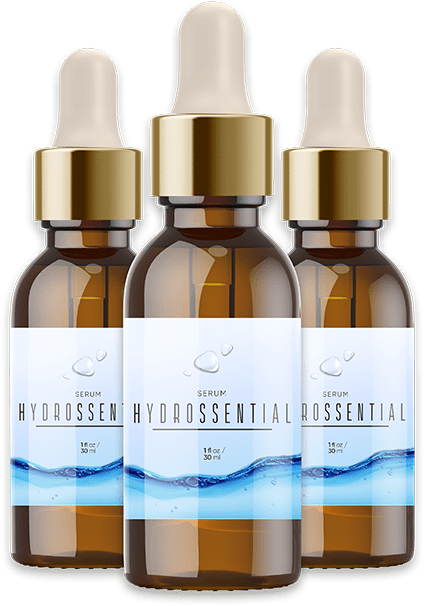
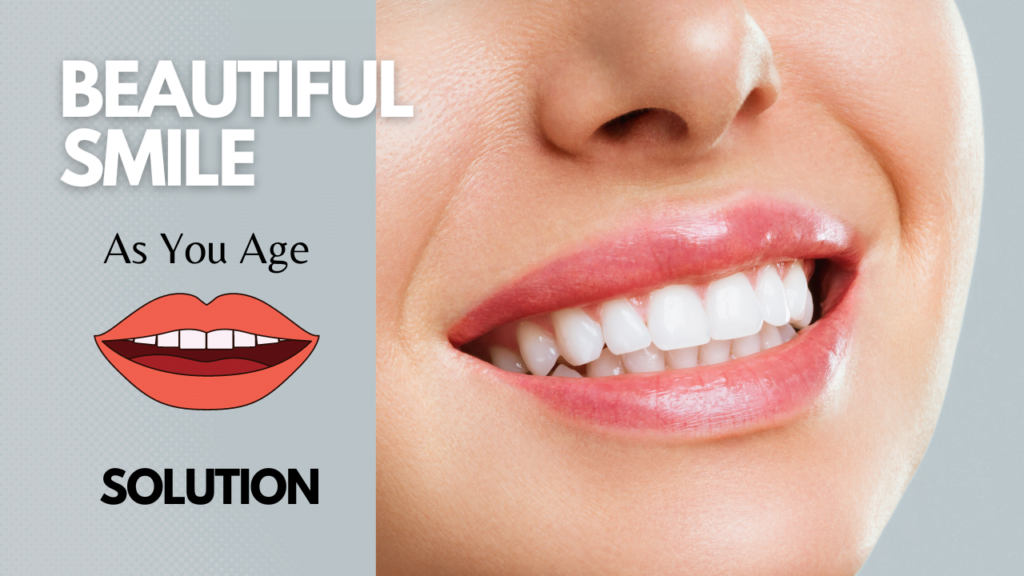
Maintenance of Skin Hydration
The importance of Moisturizers in Preventing Dry Skin
Proper hydration is crucial for maintaining healthy skin. Insufficient hydration can lead to compromised skin barriers, resulting in issues such as itching, flaking, and a lackluster complexion. Moisturizers play a pivotal role in sealing moisture within the skin, preventing water loss, and preserving optimal hydration levels. Regularly applying a suitable moisturizer for your skin type nourishes and hydrates the skin, resulting in a smoother, softer, and more supple appearance.
Effects of Proper Hydration on Overall Skin Health
Adequate hydration significantly impacts the overall health and function of the skin. Well-hydrated skin exhibits improved plumpness, resilience, and youthful vitality. Optimal hydration helps maintain skin elasticity, refines skin texture, and fortifies the natural protective barrier. Furthermore, well-hydrated skin possesses better resistance against external factors such as pollution, enhancing its ability to defend against environmental stressors that contribute to premature aging.

Skincare and Self-Confidence
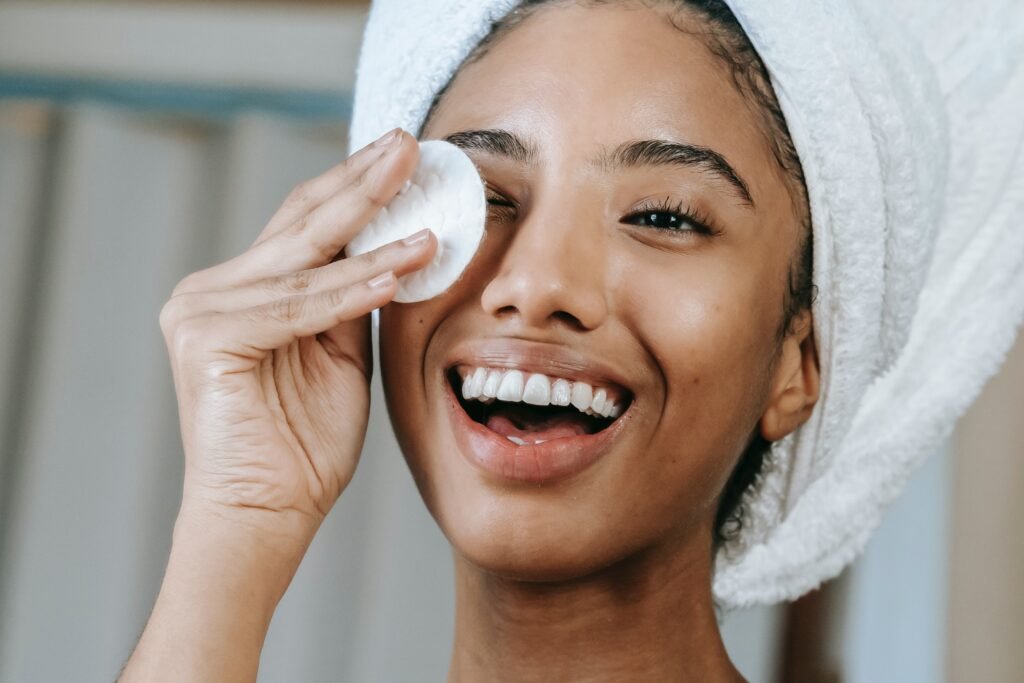
Having healthy, radiant skin profoundly affects our self-esteem and confidence. Skincare routines and products offer a means to care for and embrace our unique skin, boosting our self-image and fostering self-acceptance. Here’s how skincare enhances confidence:
- Positive self-image: Prioritizing skincare improves our skin’s health, texture, and complexion, leading to a smoother, more radiant appearance. Clearing acne, reducing blemishes, and addressing specific concerns boost our confidence.
- Self-care empowerment: Engaging in skincare rituals allows us to take control of our well-being, actively participating in self-improvement. Dedicate time to care for your skin, apply nourishing products, and cultivate a positive mindset.
- Personalized self-expression: Choose skincare products aligned with your values and preferences, creating a personalized routine that reflects your unique identity. This tailored approach fosters authenticity and confidence in your choices.
Skincare for Specific Skin Conditions

Acne Prevention and Treatment
Acne, a common skin condition, arises when hair follicles become clogged with oil, dead skin cells, and bacteria. Hormonal changes, excess oil production, bacteria, and inflammation contribute to its development.
Effective Skincare for Acne
Managing and preventing acne involves a combination of gentle cleansing, exfoliation, and targeted treatments. Non-comedogenic cleansers help remove excess oil and impurities without further irritation. Regular but gentle exfoliation unclogs pores and eliminates dead skin cells. Incorporating acne-fighting ingredients like benzoyl peroxide, salicylic acid, or tea tree oil can help manage breakouts and reduce inflammation. Consistency in skincare routines and avoiding skin picking are essential for acne management.
Eczema and Sensitive Skin Care
Challenges of Sensitive Skin: Individuals with sensitive skin face heightened reactivity and irritation in response to environmental triggers. Eczema, characterized by dryness, itching, and inflammation, is a common condition among those with sensitive skin. Understanding and effectively managing sensitive skin is crucial to prevent flare-ups and maintain skin health.
Skincare Tips for Sensitive Skin
Selecting suitable skincare products and routines is key for individuals with sensitive skin. Gentle, fragrance-free, and hypoallergenic products are recommended. Mild cleansers that preserve the skin’s natural oils should be chosen. Moisturizers with soothing ingredients like aloe vera or ceramides help maintain the skin’s moisture barrier. Patch testing new products is advisable to identify any potential irritants. Additionally, avoiding harsh exfoliation and opting for non-irritating treatments help manage sensitive skin conditions like eczema.
Top 5 Anti-aging products for sensitive skin
Importance of Skincare for Individuals with Skin Conditions
Individuals with skin conditions like psoriasis, rosacea, and others require specialized skincare to manage symptoms and maintain skin health.
For such conditions, skincare often involves gentle cleansing, moisturizing, and targeted treatments prescribed by dermatologists. Identifying triggers, such as stress or specific foods, can assist in managing and minimizing flare-ups. Protecting the skin from harsh environmental factors, utilizing appropriate skincare products, and adhering to consistent skincare routines are crucial for individuals with these conditions.
By customizing skincare practices to address specific skin conditions, individuals can effectively manage symptoms, promote healing, and maintain optimal skin health. Seeking guidance from dermatologists or skincare professionals ensures personalized care and treatment plans.
Developing an Effective Skincare Routine
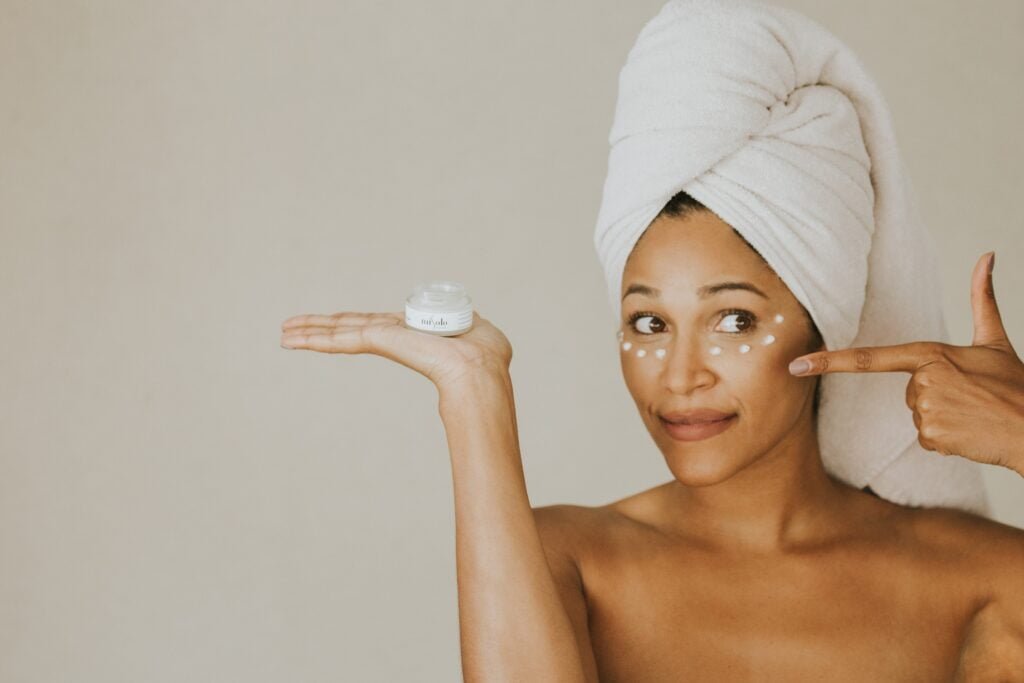
Establishing a Daily Skincare Regimen
Cleansing
Start your skincare routine by cleansing your skin to remove dirt, excess oil, and impurities. Use a gentle cleanser suitable for your skin type to achieve a fresh and clean complexion. Cleanse your skin twice a day, in the morning and evening, to maintain its cleanliness.
Exfoliating
Incorporate exfoliation into your routine to eliminate dead skin cells and reveal a brighter, smoother complexion. Depending on your skin’s sensitivity, choose between physical exfoliation (using scrubs) or chemical exfoliation (such as AHAs or BHAs) to unclog pores and improve skin texture. Limit exfoliation to 1-3 times a week to avoid overdoing it.
Recommended: ➡ (buy on amazon) Paulas Choice–SKIN PERFECTING 2% BHA Liquid Salicylic Acid Exfoliant–Facial Exfoliant for Blackheads, Enlarged Pores, Wrinkles & Fine Lines

Toning
After cleansing, use a toner to restore your skin’s pH balance and prepare it for better product absorption. Toners can help tighten pores, refine skin texture, and provide a refreshing sensation. Look for alcohol-free toners with soothing ingredients that suit your skin type.
Recommended:➡Paula’s Choice SKIN BALANCING
Pore-Reducing Toner for Combination
and Oily Skin, Minimises Large Pores

Serum
A serum plays a crucial role in any anti-aging skincare regimen, delivering potent ingredients deep into the skin. These concentrated treatments target specific concerns such as fine lines, wrinkles, uneven skin tone, and dullness.
Recommended Vitamin C Serum >>> IMAGE Skincare, VITAL C Hydrating Serum
Recommended NATURAL Serum: Hydrossential, clik here to read more
Recommended RETINOL Treatment >>> Paula’s Choice CLINICAL 0.3% Retinol + 2% Bakuchiol Treatment, Anti-Aging Serum for Deep Wrinkles & Fine Lines
Retinol, a derivative of vitamin A, is a standout ingredient in many anti-aging serums. It stimulates collagen production, smoothes out fine lines and wrinkles, and enhances skin texture. Begin with a lower concentration to prevent potential irritation, gradually increasing usage as your skin adjusts.
Vitamin C, renowned for its antioxidant properties, features prominently in anti-aging serums. It brightens the skin, fades dark spots, evens out skin tone, and promotes a more youthful and firm appearance through collagen synthesis.
Peptides, composed of amino acids, are fundamental for proteins like collagen and elastin. Serums with peptides help boost skin elasticity, reduce the visibility of wrinkles, and create a smoother complexion.
Hyaluronic Acid, a hydrating powerhouse, attracts and retains moisture, resulting in a plumping effect that minimizes fine lines. It also strengthens the skin’s moisture barrier, leading to a suppler and more radiant complexion.
Each serum contains a unique blend of ingredients, so it’s important to select one tailored to your specific concerns, skin type, and sensitivity.
Eye cream
The skin around the eyes is delicate and prone to displaying signs of aging, such as fine lines, wrinkles, puffiness, and dark circles. Eye creams, formulated with specialized ingredients, address these concerns and provide essential hydration to this sensitive area.
Peptides are frequently found in eye creams as they stimulate collagen production, diminishing the appearance of fine lines and wrinkles. These peptides enhance skin elasticity and firmness.
Retinol, in a gentle form, is included in some eye creams to smooth crow’s feet and fine lines. It aids in cellular turnover, promoting a rejuvenated and vibrant eye area.
Caffeine-infused eye creams work to reduce puffiness and under-eye bags by constricting blood vessels and decreasing fluid buildup. Additionally, caffeine can brighten the under-eye area, imparting a refreshed look.
Antioxidants such as vitamin C, green tea extract, and niacinamide are commonly incorporated into eye creams to combat oxidative stress, minimize dark circles, and shield the delicate skin from environmental damage.
When applying eye cream, use your ring finger to gently tap or massage the product around the orbital bone, taking care to avoid direct contact with the eyes. The fragility of the skin around the eyes requires a gentle approach to prevent unnecessary pulling or tugging.
The Best Anti-Aging Eye Creams in Your 50s
No.1 eye cream: Buy on amazon: NEOCUTIS Lumière Illuminating Eye Cream

Moisturizing
Hydrating your skin is crucial to maintain its moisture balance and prevent dryness. Select a moisturizer appropriate for your skin type and apply it to nourish and protect your skin. Look for lightweight, non-comedogenic formulas for oily skin, and richer, more hydrating options for dry skin. Apply moisturizer day and night to keep your skin supple and moisturized.
Sunscreen Application
Protecting your skin from harmful UV rays is vital for preventing sun damage and premature aging. Apply a broad-spectrum sunscreen with an SPF of 30 or higher as the final step of your daytime routine. Reapply sunscreen every two hours, especially when exposed to the sun for extended periods.
>>> ➡ EltaMD UV Daily Face Sunscreen with Zinc Oxide, SPF 40 Facial Sunscreen

Customizing Skincare Routines Based on Skin Type
Understanding Different Skin Types
Skin types can vary widely, including oily, dry, combination, and normal. Take the time to identify your skin type as it will guide you in selecting appropriate products and addressing specific concerns. Oily skin tends to produce excess sebum, dry skin lacks moisture, combination skin exhibits both oily and dry areas, and normal skin maintains a balanced state.
Selecting Suitable Products for Each Skin Type
Customizing your skincare routine involves choosing products that cater to your specific skin type. For oily skin, opt for oil-free cleansers and lightweight, non-greasy moisturizers. Dry skin benefits from gentle, hydrating cleansers and richer, more emollient moisturizers. Combination skin requires a balance, using different products for oily and dry areas. Normal skin can tolerate a variety of products, but focus on maintaining hydration and protection.
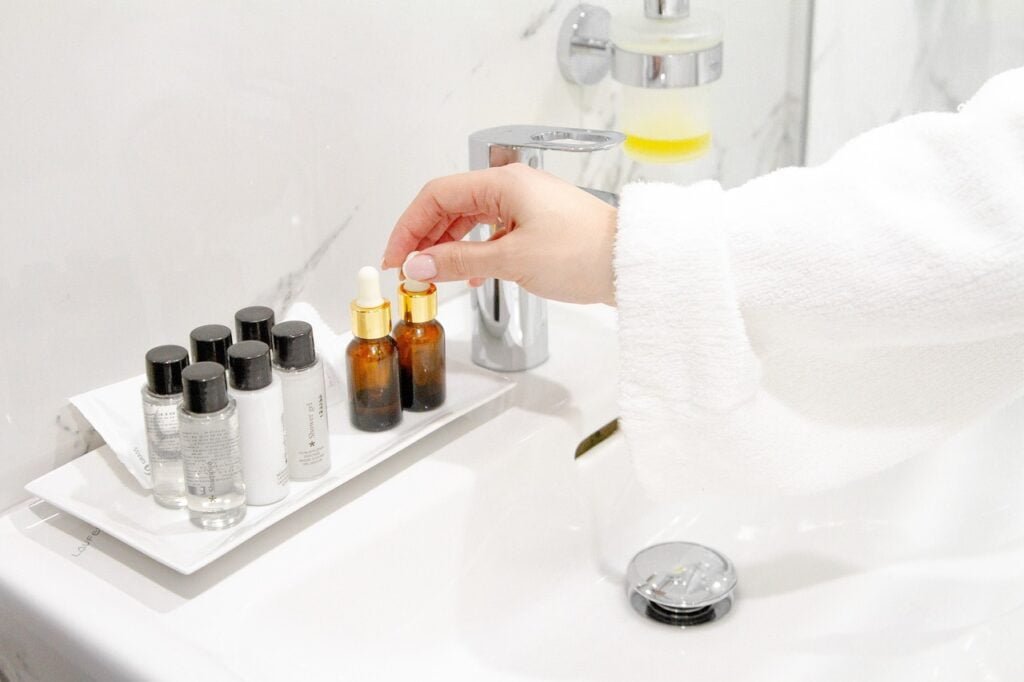
The Role of Nutrition and Lifestyle in Skincare
Diet and Skin Health
Impact of Nutrients on Skin Condition:
The food we consume significantly influences the health and appearance of our skin. Nutrients such as vitamins, minerals, and antioxidants play a vital role in maintaining skin health. For instance, vitamin C stimulates collagen production, vitamin E protects against oxidative damage, and omega-3 fatty acids nourish the skin. A deficiency in these nutrients can contribute to various skin issues.
Live Conscious Collagen Peptides Powder

Importance of a Balanced Diet Rich in Vitamins and Antioxidants:
A balanced diet that includes a diverse range of fruits, vegetables, whole grains, lean proteins, and healthy fats is crucial for optimal skin health. These foods provide essential vitamins and antioxidants that support the skin’s natural functions and shield it from free radical damage. Including colorful fruits and vegetables like berries and leafy greens ensures a variety of nutrients beneficial for the skin.
Lifestyle Factors Influencing Skin Health
Regular Exercise for Skin Health:
Engaging in regular exercise promotes healthy circulation, which nourishes the skin by delivering oxygen and nutrients. Exercise also helps reduce stress levels, indirectly benefiting the skin. Incorporating a combination of cardiovascular exercises, strength training, and flexibility exercises supports overall well-being and enhances skin health.

Managing Stress for Skin Health:
High levels of stress can negatively impact the skin, leading to increased oil production, inflammation, and breakouts. Stress hormones disrupt the skin’s natural balance and impede its ability to repair and regenerate. Therefore, implementing stress management techniques like meditation, deep breathing exercises, yoga, or engaging in hobbies can reduce stress levels and promote healthier skin.
Recommended:

Common Skincare Mistakes to Avoid
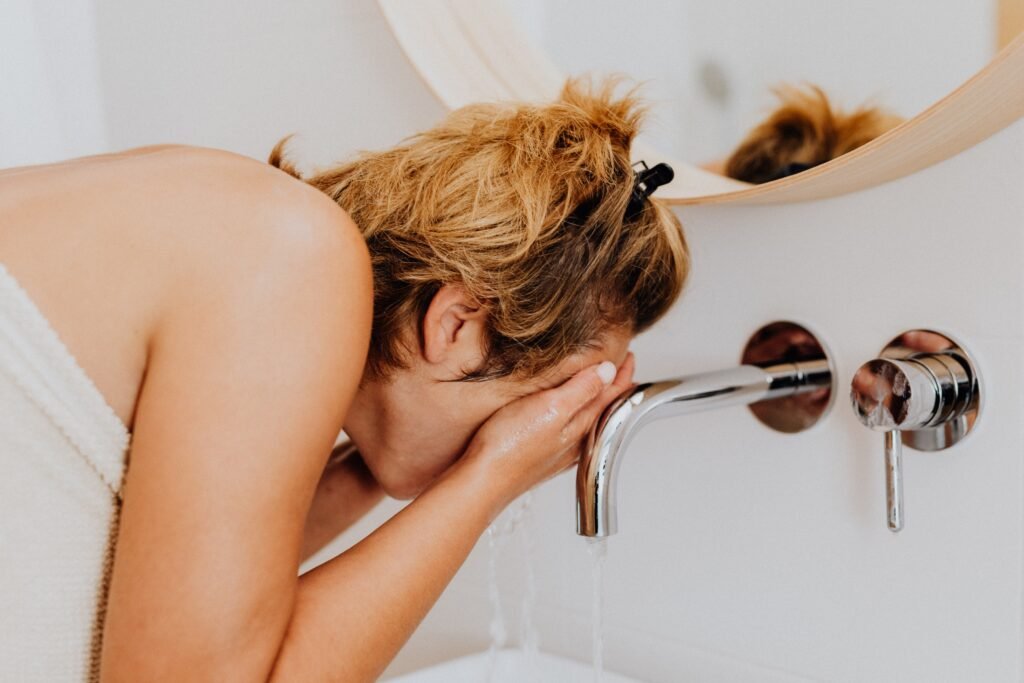
Overwashing
Excessive washing strips away natural oils, causing dryness and potential irritation. Avoid over-cleansing and opt for a gentle cleansing routine, washing your face only twice a day unless otherwise advised by a dermatologist.
Harsh Product Usage
Harsh skincare products containing alcohol or strong chemicals can lead to irritation, redness, and dryness. Choose gentle, non-comedogenic products that suit your skin type. Read ingredient labels carefully and avoid products with potential irritants.
Neglecting Sun Protection
Skipping Sunscreen
Neglecting sunscreen exposes the skin to harmful UV rays, resulting in sunburns, premature aging, and an increased risk of skin cancer. Make sunscreen a daily essential, regardless of the weather or season, by incorporating broad-spectrum protection into your routine.
>>> EltaMD UV Active SPF 50+ Mineral Sunscreen Lotion

Ignoring Individual Skin Type and Incompatible Products
Unawareness of Skin Type
Ignoring your specific skin type when selecting skincare products can lead to ineffective results or worsen existing skin concerns. Understand your skin type—whether oily, dry, combination, or sensitive—to choose products that cater to your unique needs.
Using Incompatible Products
Using skincare products that are incompatible with your skin type or contain harsh ingredients can trigger adverse reactions and skin problems. Avoid products that cause redness, irritation, or breakouts. Instead, opt for products specifically formulated for your skin type and concerns.
Inadequate Makeup Removal
Inadequate Removal
Failing to thoroughly remove makeup can clog pores, leading to breakouts and dull-looking skin. Ensure you remove all traces of makeup before cleansing your face. Consider using a gentle makeup remover or employing the double-cleansing method for a thorough cleanse.
How to Protect Your Skin from UV Damage and Premature Aging: A Comprehensive Guide
Skincare and Environmental Sustainability
Environmental Impact of Skincare Products
Packaging Waste
Skincare products generate significant packaging waste, contributing to environmental harm. Single-use plastic containers, often used for packaging, end up in landfills or pollute water bodies. This widespread packaging waste contributes to plastic pollution, impacting ecosystems and the environment.

Chemical Pollution
Skincare products often contain chemicals that can harm the environment. Ingredients like microbeads, certain preservatives, and synthetic fragrances pose a threat to aquatic life and ecosystems when they enter waterways through wastewater, causing chemical pollution.
Importance of Choosing Sustainable and Eco-Friendly Skincare Options
Sustainable Packaging
Prioritizing skincare products with sustainable packaging helps minimize waste and reduce environmental impact. Look for brands that use recyclable or biodegradable materials, offer refillable options, or use packaging made from recycled materials.
Clean and Natural Formulations
Opt for skincare products with clean and natural formulations, avoiding harmful chemicals. By choosing products with minimal environmental impact, you contribute to healthier ecosystems and minimize the release of toxins.
Cruelty-Free and Vegan Brands
Support skincare brands that are cruelty-free and do not test on animals. Choosing vegan skincare products not only avoids animal exploitation but also promotes an ethical and sustainable industry.
Minimalistic Approach
Embrace a minimalistic skincare approach to reduce product consumption and waste. Focus on essential products and avoid unnecessary purchases. By reducing the demand for skincare products, we can help lessen the industry’s environmental footprint.
Eyes that Never Age: Unlocking the Secrets of Homemade Eye Cream
DIY and Natural Alternatives
Explore DIY skincare using natural ingredients as eco-friendly alternatives. Simple household items like honey, oats, and oils can be utilized to create effective skincare remedies that are gentle on the skin and the environment.
By selecting sustainable and eco-friendly skincare options, we actively contribute to environmental sustainability. Opting for products with eco-conscious packaging, clean formulations, and ethical practices promotes a healthier planet and responsible consumption. Let’s make mindful choices in our skincare routines to protect our skin and the environment simultaneously.
The Power of Natural Anti-aging skin care: Effective and Affordable Solutions
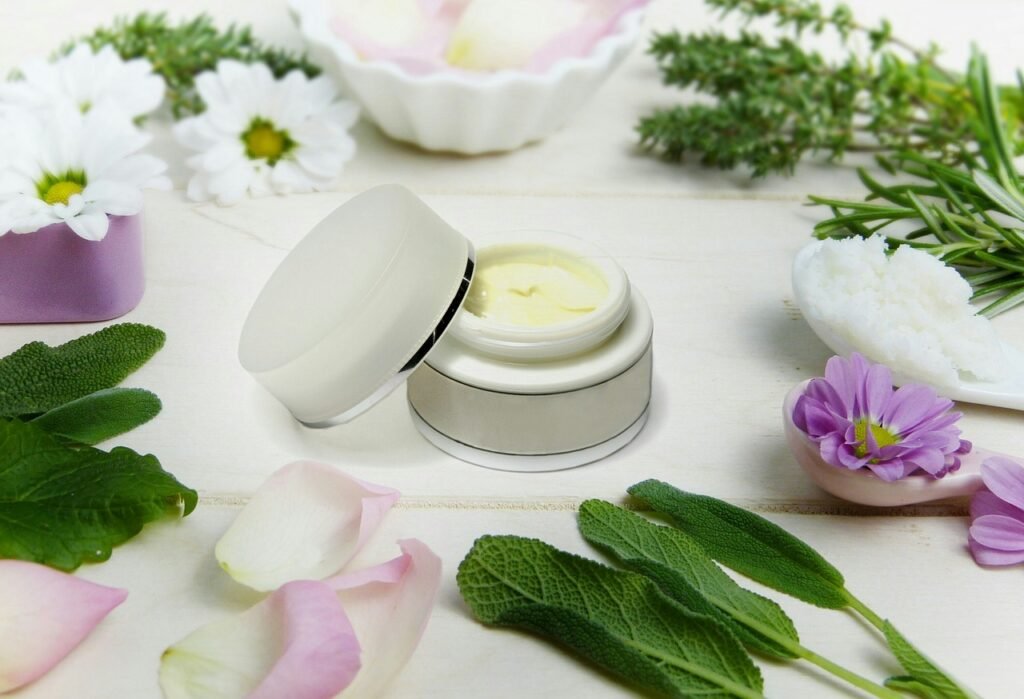
Conclusion – Why is Skincare Important
In conclusion, skincare holds a profound significance that extends beyond superficial concerns. Throughout this article, we have delved into its multifaceted importance, encompassing overall health, self-confidence, and the prevention of skin-related issues.
Skincare is important aspect of maintaining the health and vitality of our skin. By embracing suitable products, understanding our unique skin type, and following a consistent skincare routine, we can nurture a radiant complexion and cultivate a sense of self-assurance.
Let us prioritize skincare as an integral component of our daily lives, recognizing its profound impact on our overall health and self-assurance. Embrace the transformative power of skincare, unlocking the potential for a vibrant, healthy complexion that radiates our inner vitality and beauty.
top 5 Most User-Friendly Home Treatment Devices for Skin Rejuvenation
FAQs – Why is Skincare Important
How do I determine the most suitable skincare routine for my skin type?
Identifying the ideal skincare routine starts with understanding your specific skin type. For oily skin, opt for oil-free cleansers and lightweight, non-comedogenic moisturizers. Dry skin benefits from gentle, hydrating cleansers and richer, more emollient moisturizers. Combination skin requires a balanced approach with products tailored to oily and dry areas. Normal skin can tolerate a variety of products but still requires proper hydration and protection. Consulting a dermatologist can provide personalized recommendations for your skin type.
How often should I exfoliate my skin?
Exfoliation frequency depends on skin sensitivity and individual needs. Generally, exfoliating 1-3 times a week is sufficient for most skin types. However, individuals with sensitive skin should exfoliate less frequently to avoid irritation. Pay attention to your skin’s response and adjust the frequency as needed. Over-exfoliating can lead to dryness and compromise the skin’s protective barrier.
Is sunscreen necessary on cloudy days?
Sunscreen is essential regardless of cloud cover. UV rays can penetrate clouds and cause skin damage, even on overcast days. To ensure proper protection, incorporate a broad-spectrum sunscreen with at least SPF 30 into your daily skincare routine, regardless of the weather.
Are natural or organic skincare products better for the skin?
The preference for natural or organic skincare products varies among individuals, and their effectiveness depends on personal factors and skin sensitivities. While these products often avoid harsh chemicals and synthetic ingredients, it is important to note that not all natural ingredients suit everyone, and not all synthetic ingredients are harmful. Consider your specific skin needs and sensitivities when selecting skincare products.
Can I use the same skincare products for my morning and evening routines?
While certain products can be suitable for both morning and evening routines, it is crucial to consider the unique needs of your skin throughout the day. For instance, using a lightweight moisturizer during the day and a more nourishing one at night can provide optimal hydration. Additionally, incorporating products with SPF in the morning is vital for sun protection. Assessing your skin’s individual requirements and selecting appropriate products for each routine will help maximize their effectiveness.







